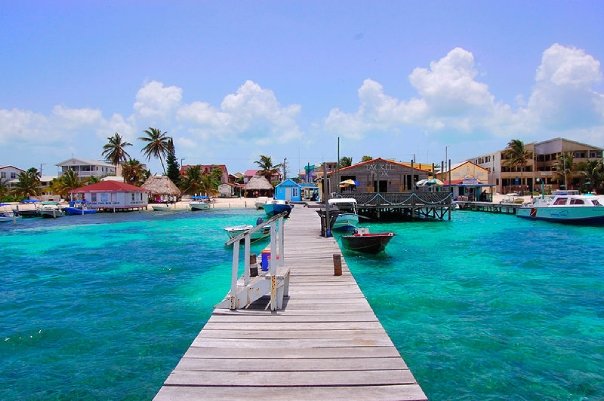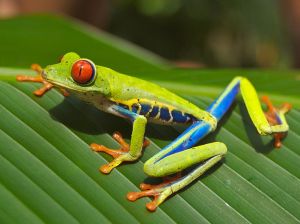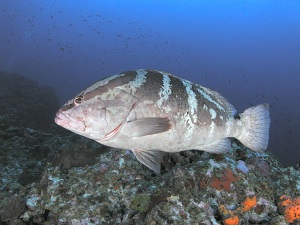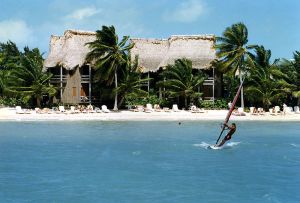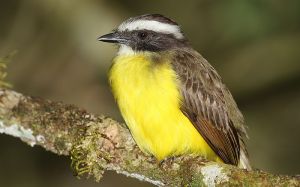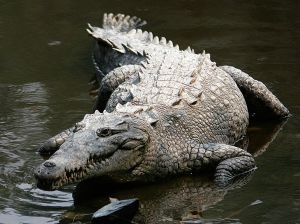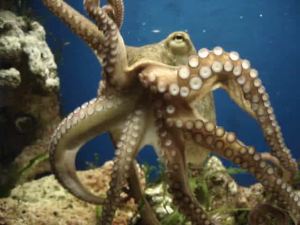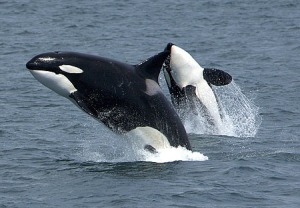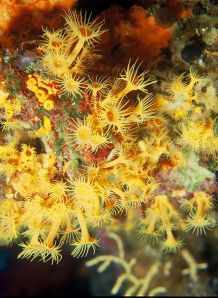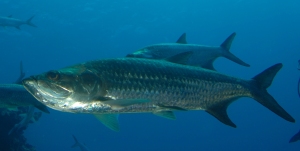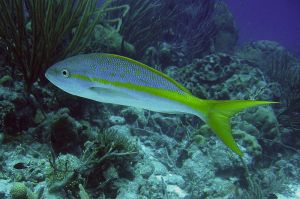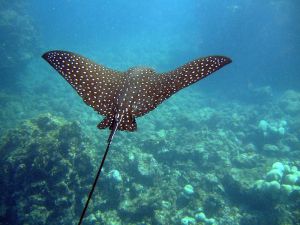The Octopus
Octopuses have two eyes and four pairs of arms . An octopus has a hard beak, with its mouth at the center point of the arms. Most octopuses have no internal or external skeleton, allowing them to squeeze through tight places. Octopuses are highly intelligent, probably the most intelligent of all invertebrates.
The octopus inhabits many diverse regions including
Belize, especially the reefs. For defense against predators, they hide, flee quickly, expel ink, or use color-changing camouflage. An octopus trails its eight arms behind it as it swims. All octopuses are venomous, but only the small blue ringed octopus are deadly to humans. There are around 300 recognized octopus species. The most common specie in
Belize is the Caribbean Reef Octopus
Octopus are characterized by their eight arms, usually bearing as much as 24o suction cups arranged in 2 rows on each arm. The arms of octopuses are often distinguished from the pair of feeding tentacles found in squids. Most have almost entirely soft bodies with no internal skeleton. They have neither a protective outer shell, nor any vestige of an internal shell or bones, like a squid. A beak similar in shape to a parrot's beak, is the only hard part of their body. This allows them to squeeze through very narrow slits between underwater rocks, which is very helpful when they are fleeing from other predatory fish.
Octopuses have a relatively short life expectancy, and some species live for as little as six months. Larger species may live for up to five years under suitable circumstances. However, reproduction is a cause of death, males can only live for a few months after mating, and females die shortly after their eggs hatch. They neglect to eat during the (roughly) one month period spent taking care of their unhatched eggs, but they don't die of starvation. Endocrine secretions are the cause of genetically programmed death ( if these glands are surgically removed, the octopus may live many months beyond reproduction, until she finally starves).
Octopuses have three hearts. Two pump blood through each of the two gills, while the third pumps blood through the body.
Octopuses are highly intelligent, it is believed more than any other invertebrate. The exact extent of their intelligence and learning capability is much debated among biologists,
experiments have shown that they do have both short and long-term memory. Their short lifespans limit the amount they can ultimately learn. There has been much speculation to the effect that almost all octopus behaviors are independently learned rather than instinct-based, although this remains largely unproven. They learn almost no behaviors from their parents, with whom young octopuses have very little contact.
An octopus' main defense is to hide, either not to be seen at all, or not to be detected as an octopus.They also have several secondary defenses (defenses they use once they have been seen by a predator). The most common secondary defense is fast escape. Other defenses include the use of ink sacs, and camouflage.
Most octopuses can eject a thick blackish ink in a large cloud to aid in escaping from predators. The main colouring agent of the ink is melanin, which is the same chemical that gives humans their hair and skin color.
When octopuses reproduce, males use a specialized arm to insert packets of sperm into the female's mantle cavity. usually their third right arm. Males die within a few months of mating. In some species, the female octopus can keep the sperm alive inside her for weeks until her eggs are mature. After they have been fertilized, the female lays about 200,000 eggs (this figure dramatically varies between families, genera, species and also individuals). The female cares for the eggs, guarding them against predators, and gently blowing currents of water over them so that they get enough oxygen. The female does not hunt during the roughly one-month period spent taking care of the unhatched eggs and may ingest some of her own arms for nutrients. At around the time the eggs hatch, the mother leaves the lair and is too weak to defend herself from predators, often giving in to their attacks. The young octopuses spend a period of time drifting in clouds of plankton, where they feed on copepods, larval crabs and larval starfish until they are ready to descend to the bottom of the ocean, where the cycle repeats itself. This is a dangerous time for the young octopuses, in the plankton cloud they are vulnerable to plankton eaters.
